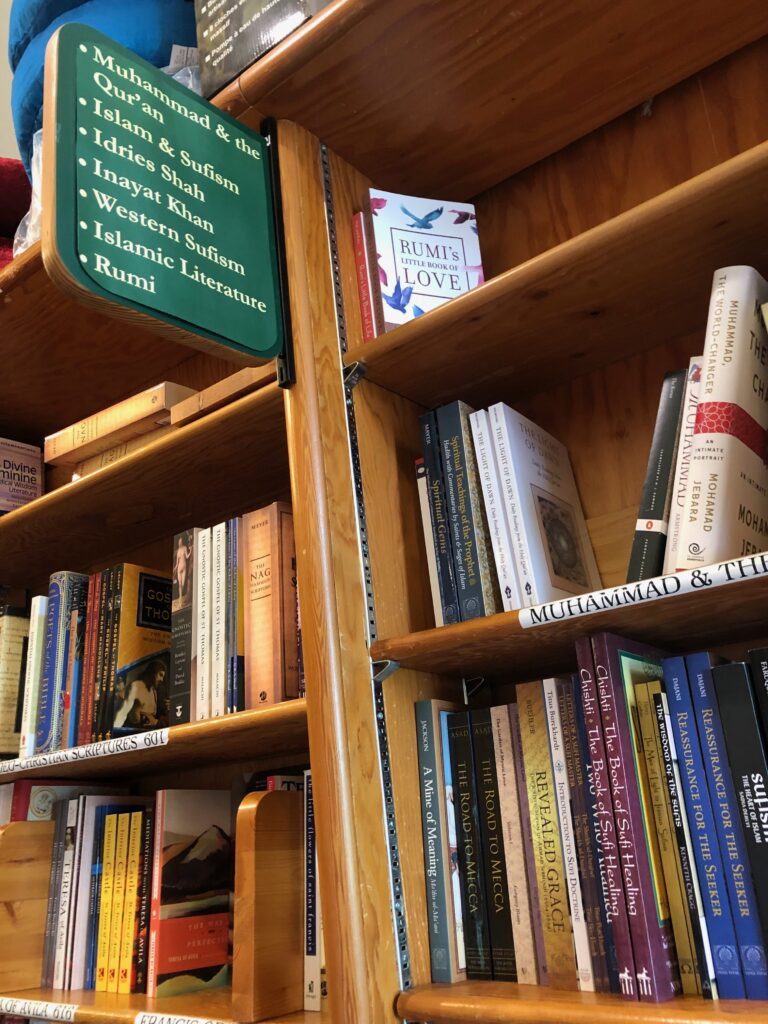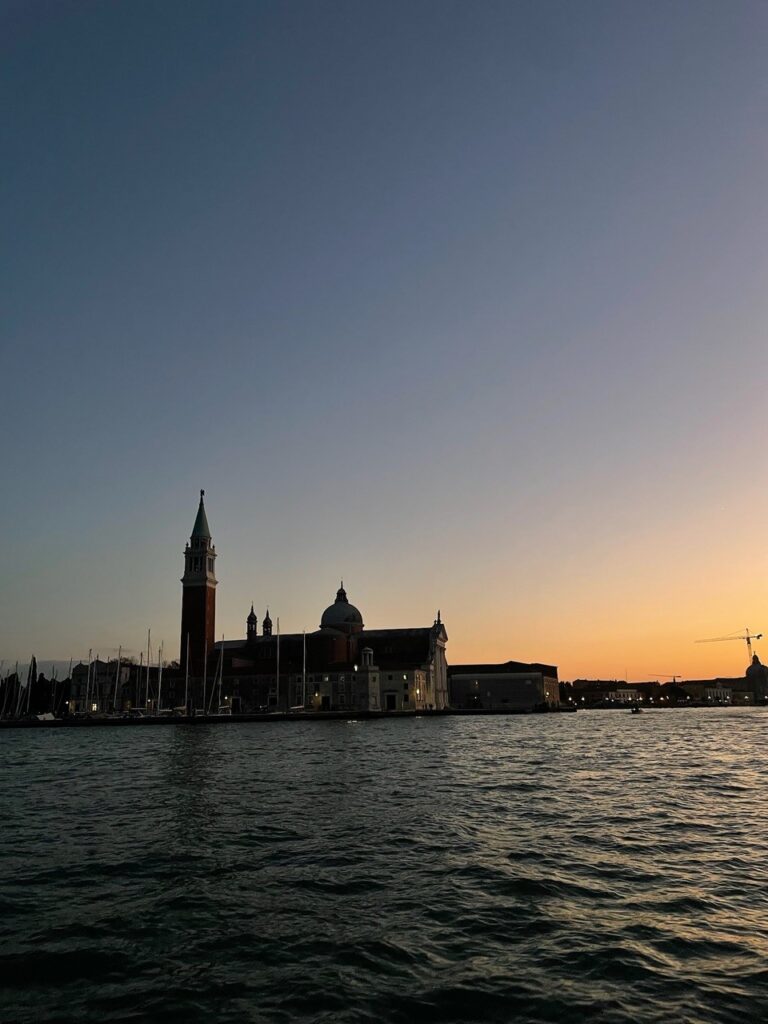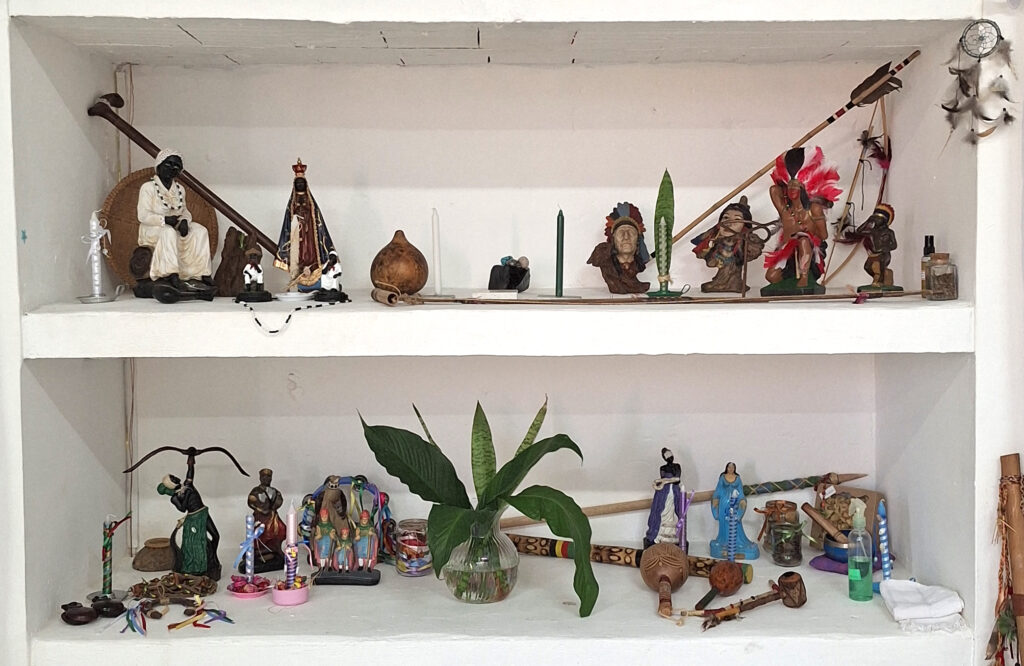By Jason Ānanda Josephson Storm
Why is enchantment both widespread and suppressed? Put differently, disenchantment is a myth, why is there a prevailing belief in its existence? Since the release of my monograph The Myth of Disenchantment: Magic, Modernity, and the Birth of the Human Sciences, I have often encountered variations of these inquiries. In this research note, by reflecting on my book during my visit to Erlangen and participation in the CAS-E workshop, I aim to address this matter by elucidating the correlation between secularization and disenchantment; and by showing how an abundance of “enchantment” paradoxically reinforces certain aspects of disenchantment.
First and foremost, it is crucial to distinguish analytically between secularization and disenchantment. Secularization can be defined in various ways, yet it predominantly refers to the decline of religious institutions and the privatization of religious practices (Casanova 1994). Sociologists have diligently sought to quantify the extent of secularization through various means, including monitoring church attendance, conducting surveys on religious identity, and gauging belief in a deity. Disenchantment, while also a subject of significant debate, has often been taken to denote a waning belief in phenomena such as “astrology, witchcraft, magical healing, divination, ancient prophecies, ghosts, and fairies” and the like (Thomas 1971). (The arbitrariness of this list will be discussed below). In a similar vein, efforts to measure disenchantment have frequently involved assessing the level of belief in magic, ghosts, and other “paranormal” entities through surveys (Bader, Mencken, and Baker, 2010).
Both conventional accounts of secularization and disenchantment have their shortcomings, and in general, surveys carry inherent limitations (as we discussed I think “belief” itself is often understood in an unhelpfully reductive way). Still, the main point I wish to emphasize is this: not only can secularization and disenchantment be analytically distinguished, but, as I have argued, there is compelling evidence suggesting that the degree of secularization, if anything, appears to correlate with an increase in “enchantment.” As individuals depart from institutional religions, they often adopt a more (superficially) diverse set of beliefs, thereby frequently gravitating towards beliefs in magic, spirits, and similar phenomena. Indeed, sociologists like Bader et al. report that approximately 73% of Americans hold at least one “paranormal” belief. Furthermore, although data from Western Europe is limited, it suggests that despite vastly different rates of church attendance and professed belief in a deity, there exists evidence of similar levels of paranormal belief. To state it plainly, in many regions of Europe and America, as belief in God wanes, belief in ghosts and psychic powers seems to either increase or at least remain constant (Storm 2017, esp. 30-34). Therefore, it’s essential to differentiate between secularization and disenchantment.
Second, the other key point I want to make in this research note is that this also explains one of the most puzzling aspects of contemporary enchantment/disenchantment that is the way that increasing enchanted belief fuels disenchantment and the reverse. My perspective is that there are two crucial underlying factors: firstly, contemporary sociological findings reveal that belief in various forms of enchantment exhibits uneven distribution. Remarkably, about three-quarters of Americans embrace at least one supernatural belief, yet the specific beliefs embraced vary widely among individuals and social groups. To illustrate, according to Bader, Mencken, and Baker, there appears to be a reverse correlation between belief in demonic influence and ghosts. Thus, a stronger belief in demons correlates with a lesser belief in ghosts. In other words, a significant demographic (often correlated with various forms of Christian identity) believe that ghosts are really demons and thus dismiss spiritualists as diabolically inspired.
In contrast to a homogeneous New Age belief system, various “enchanted” communities frequently hold dismissive views of each other. For instance, self-identified practitioners of magic often view spiritualists as impostors, and the feeling is mutual. Similarly, psychics may reject ritualistic practices, attributing phenomena attributed to magic to psychic abilities instead. This suggests that “paranormal” beliefs often undermine each other. I have used the expression “an interchange of enchantments” to describe this phenomenon, highlighting how esoteric beliefs may paradoxically contribute to a process of disenchantment (Storm 2017, 29, 284). This dynamic reveals a complex landscape where metaphysical beliefs serve not only as a form of spiritual engagement but also as a potential pathway towards disenchantment, with communities often in dismissive contention with one another.
This isn’t the only reason for occult disavowal. As I have argued, the concept of “modernity” as a historic break was foundational in establishing the social sciences, a notion derived from Christian anti-paganism as well as particularly Protestant critiques of Catholicism (Storm 2017, see also Hanegraaff 2012). This view of modernity often involved distancing from Europe’s so-called pagan past, branding it as superstition, magic, and myth, and projecting these labels onto non-Christian others, especially against the backdrop of colonization. Being modern was equated with rejecting beliefs in spirits and magic, seen by later Christians as pagan relics, a vision of a de-spiritualized modernity that Europeans and Americans believed they were spreading worldwide. Yet, the Euro-American perspective wasn’t as distinct from African and Asian cultures as suggested. The widespread belief in “enchantment” among Europeans was not seen as contradicting modernity but as indicating an incomplete realization of it. Thus, the will-to-be disenchanted also took hold within Euro-American contexts often as a kind of internalized regulative ideal, albeit one that was constantly being eclipsed.
Finally, the narrative of magic’s decline finds its roots in folktales, where magic is often portrayed as a lost art. Moreover, as I argue in The Myth of Disenchantment, the gods, spirits, or fairies have been described as disappearing since at least Chaucer and arguably since Plutarch. Thus, magic has been regularly depicted as fading, despite claims of its revival by magicians. In brief, disenchantment has frequently been intertwined with the concept of magic throughout European history, making enchantment and disenchantment two sides of the same coin.
In summary, by analytically distinguishing between secularization and disenchantment, we can understand that the fragmentation of beliefs plays a dual role, fostering both enchantment and disenchantment. This insight reveals that as traditional religious affiliations wane, individuals often explore a variety of beliefs, leading to a complex interplay of newfound enchantments and ongoing disenchantments.
Jason Ānanda Josephson Storm is a visiting Professor at the Center for the Study of World Religions at Harvard University and he is also a Professor of Religion and Chair of Science & Technology Studies, at Williams College. He is the author of the following books;
“The Invention of Religion in Japan”: http://amzn.to/2oI4ors
“The Myth of Disenchantment: Magic, Modernity, and the Birth of the Human Sciences”: http://amzn.to/2ozn10r
“Metamodernism: The Future of Theory”: https://amzn.to/36LNa2q
___
References
Bader, Christopher, F. Carson Mencken, and Joseph Baker. 2010. Paranormal America: Ghost Encounters, UFO Sightings, Bigfoot Hunts, and Other Curiosities in Religion and Culture. New York: New York University Press, 2010.
Casanova, José. 1994. Public Religions in the Modern World. Chicago: University of Chicago Press.
Hanegraaff, Wouter. 2012. Esotericism and the Academy: Rejected Knowledge in Western Culture Cambridge: Cambridge University Press.
Storm, Jason Ānanda Josephson. 2017. The Myth of Disenchantment: Magic, Modernity, and the Birth of the Human Sciences. Chicago: University of Chicago Press.
Thomas, Keith. 1971. Religion and the Decline of Magic. New York: Scribner.
___
Image credits
Image 1: https://press.uchicago.edu/ucp/books/book/chicago/M/bo26032843.html
CAS-E blogs may be reprinted with the following acknowledgment: “This article was published by CAS-E on February 14th, 2024.”
The views and opinions expressed in blog posts and comments made in response to the blog posts are those of the author(s) and do not necessarily reflect the views and opinions of CAS-E, its founders, its staff, or any agent or institution affiliated with it, nor those of the institution(s) with which the author is affiliated.








